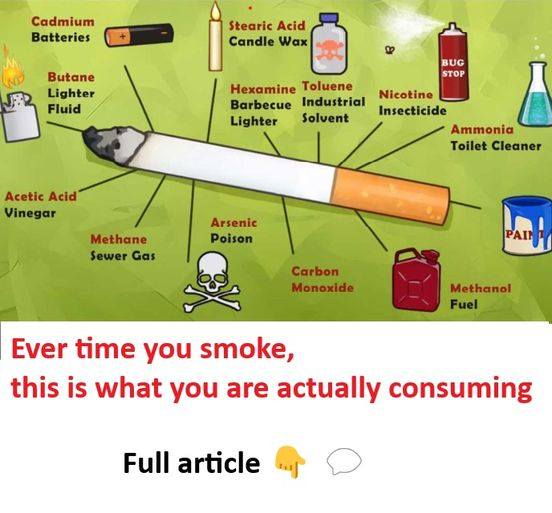Smoking is an act that has been a part of human culture for centuries. Despite its historical and social significance, the act of smoking, particularly cigarette smoking, introduces a plethora of harmful substances into the body. Beyond the well-known dangers of nicotine and tar, cigarettes contain a disturbing array of chemicals that are more commonly found in industrial and household products.
Understanding what exactly you are inhaling every time you light up a cigarette might just be the catalyst needed to reconsider the habit. Here, we delve into some of the toxic substances found in cigarettes and their usual, unsettling applications.
Cadmium: The Battery Element
Cadmium is a heavy metal that is commonly used in the manufacture of batteries. It is a toxic element that can cause severe damage to the kidneys and is known to be carcinogenic. Inhaling cadmium from cigarette smoke contributes to its accumulation in the body, posing significant long-term health risks.
Butane: Lighter Fluid
Butane is a highly flammable gas used as lighter fluid. This volatile substance is found in cigarette smoke, contributing to its toxicity. Inhaling butane can cause a range of health issues, from respiratory problems to more severe systemic effects.
Methane: Sewer Gas
Methane, a primary component of sewer gas, is another chemical found in cigarette smoke. While it is less toxic compared to other substances on this list, its presence in cigarettes adds to the cocktail of harmful gases that smokers inhale.
Arsenic: The Poison
Arsenic is well-known as a potent poison. It is used in pesticides and other industrial applications. Chronic exposure to arsenic, even in small amounts, can lead to a range of health problems including various forms of cancer, cardiovascular disease, and diabetes.
Ammonia: Toilet Cleaner
